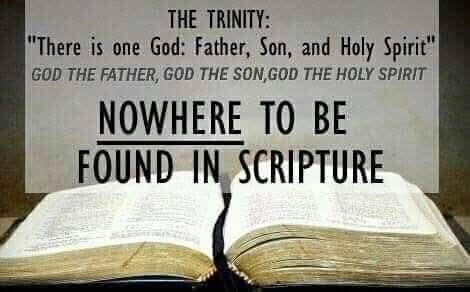If Jesus is God, why did He say that the Father is the only true God in John 17:3?


Answer
For opponents of the Bible, claiming there are contradictions or inconsistencies in the text has been one of the most common arguments against its reliability. One such claim is based on
John 17:3, where Jesus states, “Now this is eternal life; that they know You, the only true God, and Jesus Christ, whom you have sent.” Those antagonistic toward the Bible argue that this verse directly contradicts the claim that Jesus is God. They say that this passage proves that Jesus Himself agrees that there is only one true God, which is not Himself, since He refers to Himself as separate and distinct from the “true God.”
Context Is Key
A bit of context here is helpful. John chapter 17 is
a prayer from Jesus to the Holy Father. Since this is a prayer, it is only natural for Jesus to refer to God the Father separately. In that prayer Jesus initially prays that both the Father and the Son be glorified (
John 17:1–5). Next, He prays for His disciples (
John 17:6–19). Finally, He prays for all believers, both current and future (
John 17:20–26). These requests come at the time just prior to the Garden of Gethsemane where Jesus was ultimately betrayed by Judas Iscariot and taken prisoner by the Romans (
John 18:1–14). The fact that Jesus (the Son) and God (the Father) are presented as separate Beings is nothing new. In fact, the first time we hear from God the Father in the New Testament is at the baptism of Jesus. There, God says, “This is My Son, whom I love; with Him I am well pleased” (
Matthew 3:17). Distinction of person does not equate to a lack of oneness.
Jesus and the Father Are One
Jesus claimed to be one with God, and that made His enemies furious. In
John 10:30, Jesus states unequivocally, “I and the Father are one.” The next verse says, “His Jewish opponents picked up stones to stone him” (
John 10:31). Jesus’ claim to be God amounted to blasphemy in the eyes of the Jewish leaders. Jesus goes on to question them: “Why then do you accuse me of blasphemy because I said, ‘I am God’s Son?’ Do not believe Me unless I do the works of My Father. But if I do them, even though you do not believe Me, believe the works, that you may know and understand that the Father is in Me, and I in the Father” (
John 10:36–38). Here, Jesus is challenging these skeptics to look at the miracles He had performed and come up with an explanation other than that Jesus and God the Father are one.
Even contrary spiritual forces agreed with the fact that Jesus and the Father are one. In explaining saving faith to believers, James, the brother of Jesus says, “You believe that there is one God. Good! Even the demons believe that—and shudder” (
James 2:19). Theologian Wayne Grudem explains the idea of oneness, saying that Jesus and God the Father “are distinct persons, and the being of each person is equal to the whole being of God” (Grudem, W.,
Systematic Theology, Zondervan Academic, 1994).
Jesus Claimed to Be (and Is) Fully God
Though Jesus never actually said the words, “
I am God” in the pages of the Bible, that doesn’t mean that He didn’t claim to be God. Right after speaking of the “only true God” in
John 17: 3, Jesus spoke of the glory that He had with God “before the world began” (verse 5; cf.
John 1:1). Earlier, Jesus had made the following statement to the religious leaders who were resisting Him: “Very truly I tell you . . . before Abraham was born, I am!” (
John 8:58). Jesus’ reference was to
Exodus 3:14 when God revealed Himself as the “I AM.” In this statement, Jesus told them point blank that He is God. The response of His enemies proved His statement was heard loud and clear. As they held stones to throw at Him, they said, “We are not stoning You for any good work but for blasphemy, because You, a mere Man, claim to be God” (
John 10:33).
The Only True God — Conclusion
John 17:3 needs to be read in context to fully appreciate what Jesus was saying in that prayer. The contrast is not between the Father and the Son but between the Father and the world’s false gods and idols. Jesus is conversing with the Father who is in heaven while Jesus is on earth. Jesus’ statement that the Father is the only true God should not be seen as contradictory or inconsistent with the whole of the Bible, which supports the fact Jesus Christ is God.
From Got Questions.

